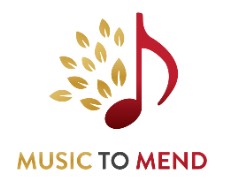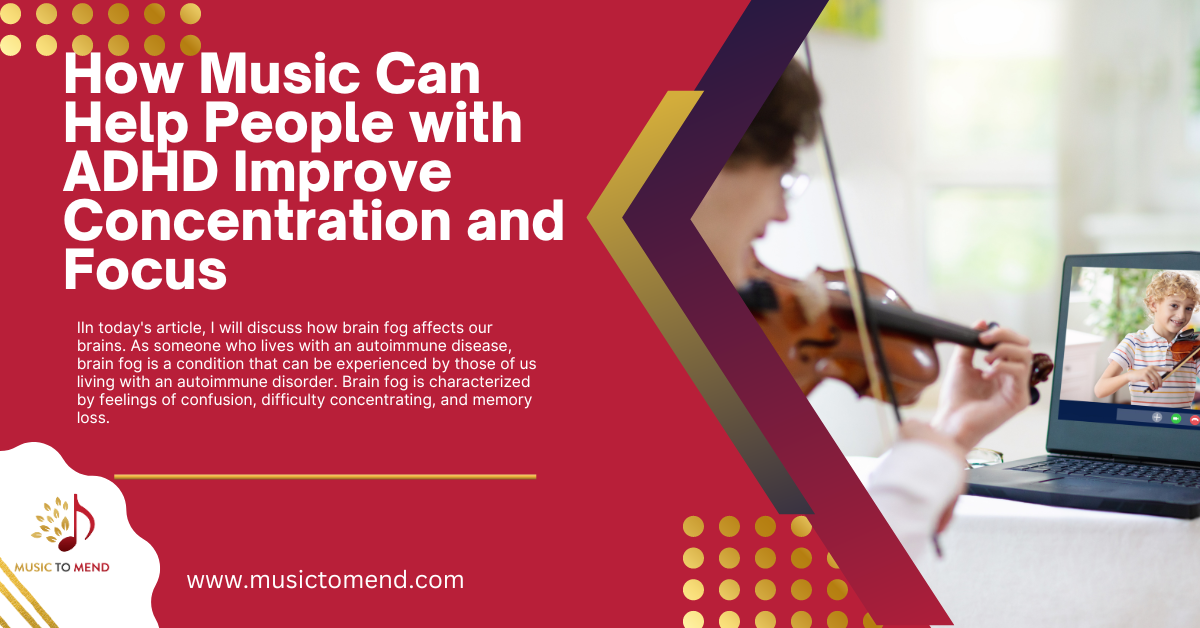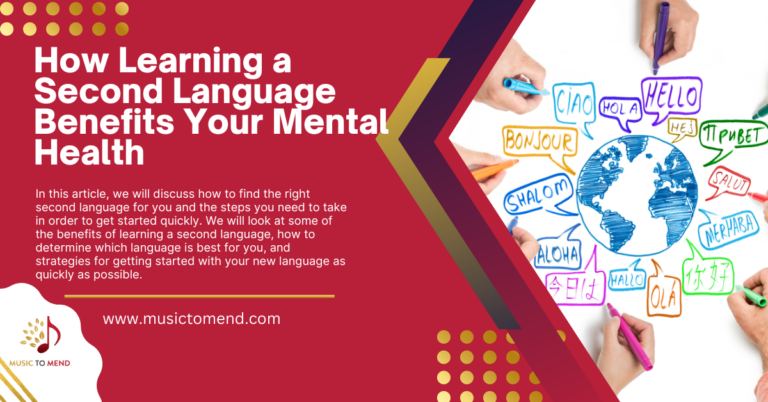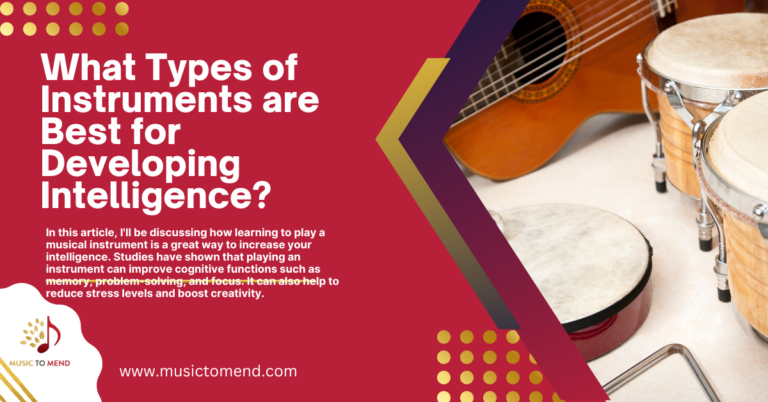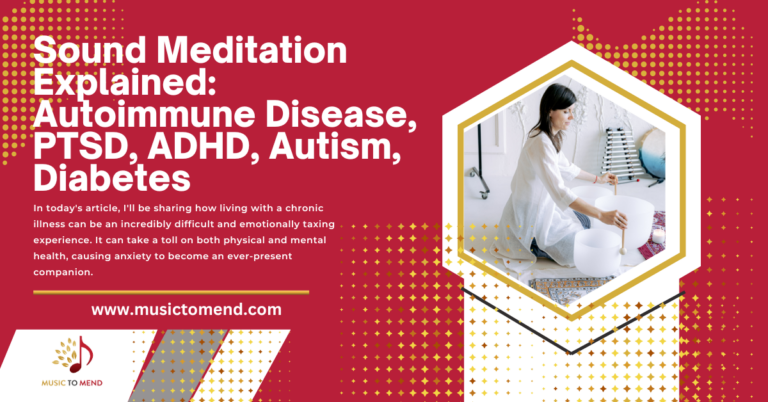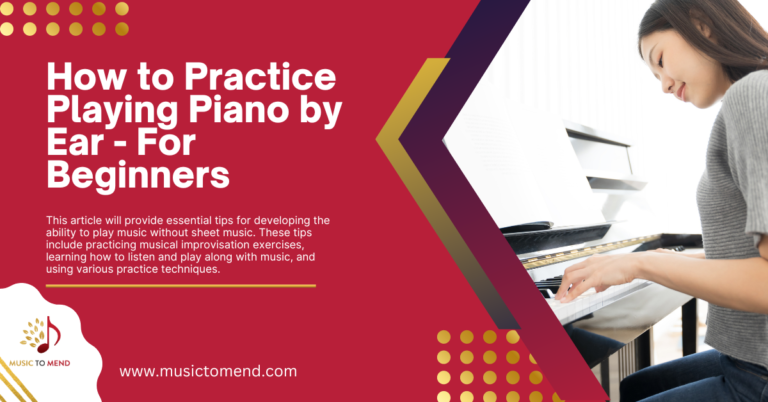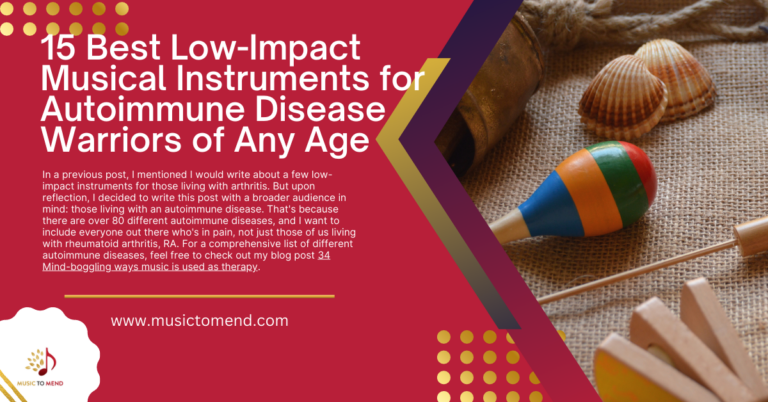How Music Can Help People with ADHD Improve Concentration and Focus

In today’s article, I will discuss how brain fog affects our brains. As someone who lives with an autoimmune disease, brain fog is a condition that can be experienced by those of us living with an autoimmune disorder. Brain fog is characterized by feelings of confusion, difficulty concentrating, and memory loss. It can also cause other cognitive issues such as difficulty organizing thoughts, difficulty finding words to express oneself, and even difficulty understanding what one reads or hears. Although it is not a medically recognized diagnosis, brain fog has been linked to various autoimmune diseases including lupus, rheumatoid arthritis, and multiple sclerosis.
Although brain fog and ADHD are two very different conditions that can have similar symptoms, brain fog is a condition characterized by poor mental clarity, difficulty concentrating, and difficulty remembering things. ADHD, on the other hand, is a disorder of the brain that causes impulsivity and hyperactivity.
Brain fog can be caused by a variety of factors such as fatigue, stress, poor diet, lack of sleep, medications or hormones. It can also be the result of an underlying medical condition such as depression or anxiety. Symptoms include difficulty concentrating and remembering things, confusion or disorientation, and feeling overwhelmed or exhausted.
ADHD (Attention Deficit Hyperactivity Disorder) is caused by an imbalance in the brain’s chemistry, affecting attention span and behavior. Symptoms include difficulty focusing on tasks for long periods of time, impulsiveness, and hyperactivity. It is important to note that while some people with ADHD may experience a cognitive decline due to their condition, this is not true for all people with ADHD.
Attention Deficit Hyperactivity Disorder (ADHD) is a mental health disorder affecting millions worldwide. It is characterized by difficulty concentrating, impulsivity, and hyperactivity. ADHD can significantly impact an individual’s ability to function in everyday life and can often lead to other mental health issues, such as depression or anxiety.
Learning to play an instrument has been used as an effective treatment for ADHD, as it has the potential to improve concentration and reduce symptoms of restlessness and impulsivity. Music as therapy may also help to improve overall mood and provide relaxation.
The Benefits of Music Therapy for People with ADHD
Music therapy has been used to help people with ADHD manage their symptoms and improve their concentration. Research has shown that music can calm the brain, allowing those with ADHD to focus better and stay on task longer. Studies have also found that music can reduce stress and anxiety, which are common symptoms of ADHD. Additionally, music therapy can help people with ADHD develop better social skills and communication techniques. Providing an outlet for creative expression, it can also be a great way to boost self-esteem and confidence in those who suffer from the disorder. People with ADHD experience a range of symptoms, including difficulty focusing, paying attention to tasks, remembering things, and organizing tasks around goals. These symptoms can make it difficult for people with ADHD to do schoolwork and hold down a job. In order to learn how to manage their condition and life more effectively, many people with the disorder seek help from experts in the fields of cognitive behavioral therapy (CBT) or psychoanalysis.
How to Use Music to Train Your Brain to Stay Focused & Calm When Struggling With ADHD
Music is a powerful tool for people with ADHD who are struggling to stay focused and calm. It can help them to manage their symptoms and improve their concentration. Different types of music can be used to create a relaxing environment, reduce stress and anxiety, and help the person focus on their tasks. From classical music to instrumental soundscapes, there are many different types of songs that can be used for calming or focus-inducing purposes. In this article, we will discuss the different types of songs that are best suited for people with ADHD who need help staying focused and calm. .Classical MusicClassical music is a broad term that can refer to any type of an art music. It is most often instrumental, and it usually features polyphony, where multiple melodies are developed simultaneously but independently. In this sense, one melody is composed while the other melodies are improvised by the musicians during a performance. This makes classical music an interesting option for people with ADHD who need some type of “routine” to help them keep their focus on tasks at hand.”
The Positive Effects of Music Lessons on Mood Regulation & Emotional Control
Music has been known to have a positive effect on mood and emotional control. Studies have shown that taking music lessons can help people regulate their emotions, improve their moods, and even reduce anxiety. Music lessons can also provide a sense of accomplishment and boost self-confidence. Furthermore, learning how to play an instrument can be beneficial in terms of cognitive development and creativity. Music lessons have positive effects on mood regulation and emotional control by releasing endorphins, which are the body’s natural feel good hormones. These endorphins are released into the brain in response to a number of conditions like physical exercise or listening to music. When a person encounters stress or anxiety-related situations, they often experience feelings of emptiness accompanied by physical tension or discomfort. Low levels of endorphin can cause headaches and fatigue as well as negative mood states such as irritability and nervousness.
Unleash Your Creativity – Start Learning to Play a Musical Instrument Today!
Learning to play a musical instrument can be one of the most rewarding and fulfilling tasks you can do. Not only does it help you unleash your creativity, but it also provides an outlet for self-expression and helps to reduce stress. With a little bit of dedication and practice, anyone can learn how to play a musical instrument. Whether you’re looking for something to pass the time or want to become an expert musician, there are plenty of instruments out there that are perfect for any skill level. So why not start learning today?
I hope you enjoyed this article.
Until next time, stay well and happy-piano playing!
Bea
